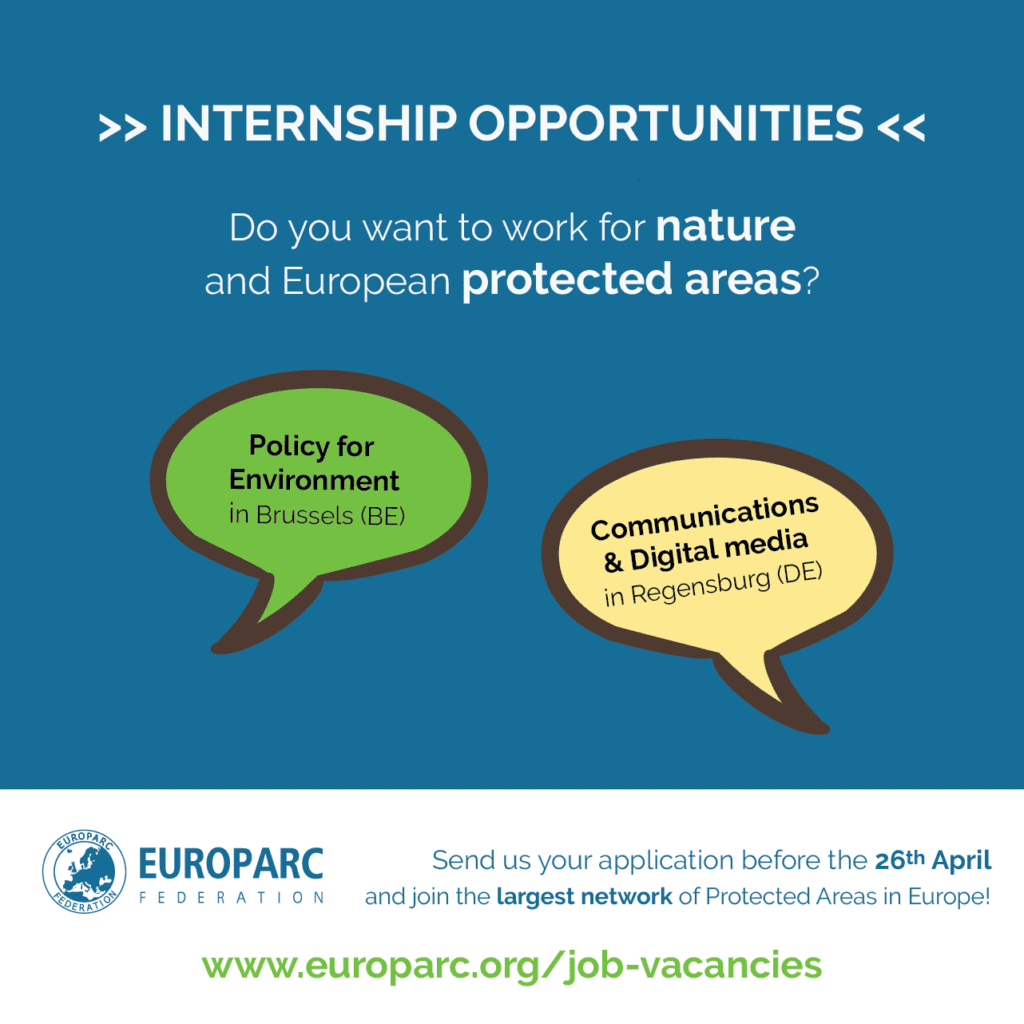Sustainable Tourism Training for Tomorrow: 2nd partner meeting in Madrid
The partners of the project ERASMUS + “Sustainable Tourism: Training for Tomorrow (STTfT)” met in Madrid from the 1st to the 3rd April. The meeting was hosted by the Spanish Ecotourism Association, at the premises of the Escuela Técnica Superior de Ingenieros de Montes de la Universidad Politécnica, to assess the project progress, and finalise the preliminary activities of the project, such as the training needs analysis and the survey on training needs’ gaps.
The project partnership also planned the content production (timing, content, people involved, practical organisation, participants) for the online training platform on Sustainable Tourism in Protected Areas aimed at both learners in professional contexts and trainers that will be made available by the end of 2019 for a first round of tests.
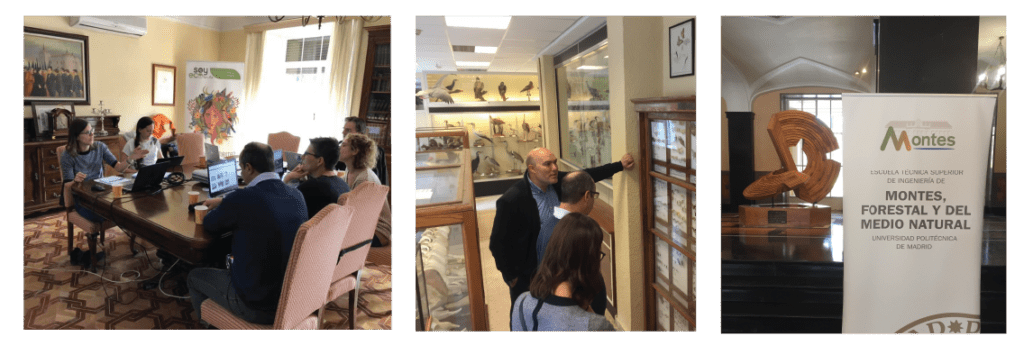
Training Sustainable Tourism Professionals
The project is fully based on the methodology of the European Charter for Sustainable Tourism in Protected Areas (ECST) and on the analysis/discussion/elaboration for 9 key topics of the ECST. This will be the first time that integrated sustainable tourism training content (including case studies and best practice) on all key principles and actions of the ECST will be developed and made available in a single platform aimed at all key tourism stakeholder groups working in European Protected Areas. The online platform will take inspiration from the MOOC format, and also from the newer trend for VOOCs (Vocational Open Online Course).
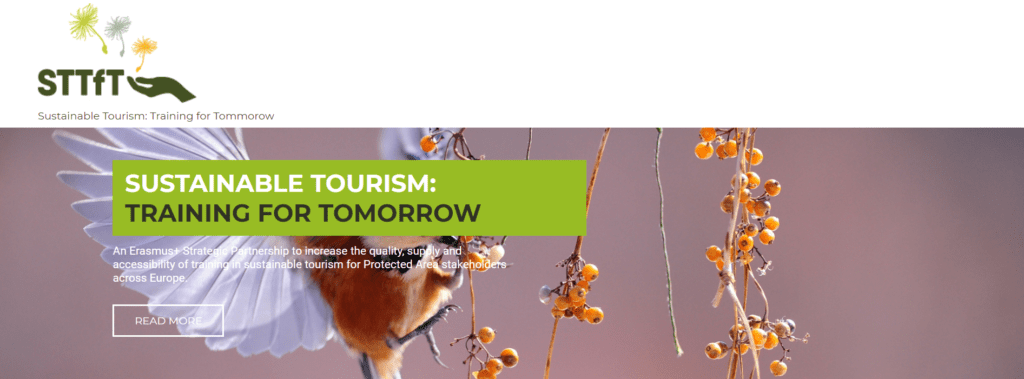
It is widely recognised that one of the biggest challenges for tourism is the sustainable conservation and management of the natural resources that support it.
The existing “skills gap” on sustainable tourism more widely, and on sustainable tourism in Protected Areas more specifically, has been frequently identified over the past few years in both policy reports and the academic literature. For example, the 2016 “Blueprint for sectoral cooperation on skills” identified shortages across the EU in several traditional core tourism skills (e.g. languages, interpersonal skills, etc), and the EC commissioned the study “Mapping and performance check of the supply side of tourism education and training” (2016), that identified “skills for sustainability” as one of the five specific skills challenges of the sector (together with traditional core skills, ICT skills, accessibility and recruitment).
Furthermore, the report “Sustainable tourism and Natura 2000” (2001) also identified the need for training for PA staff and local tourism enterprises. This project will directly supports the Vilm Declaration on “Professionalising Protected Area Management in Europe” (2013) which stressed the need for jointly developed training activities and products to improve the capacity of PA managers in relevant associated sectors such as tourism.
The second main category of results generated during the project will be a programme of multiplier events, which will be delivered across Europe to widely promote the use of the platform, including:
- a “train the trainer” workshop,
- face-to-face training to reach out large numbers of end beneficiaries (Protected Areas staff, tourism businesses, and local authorities);
- a final dissemination event targeted at European policymakers to showcase the training platform and disseminate the associated publications.
The first step: A Training Needs Analysis Survey
The agreed method for calculation of training needs’ gaps includes the relevance/importance of issue for their job (and/or for efficient/effective engagement with the ECST development and implementation process), versus perception of the current level of ability/knowledge on that issue. By subtracting the average value of perceived “importance” from the average value of “present level of knowledge/ability” (i.e. present level – importance), the project can identify main knowledge/training gaps and list priority areas of focus.
Over the next months, a training needs survey will be distributed across the various networks of the project partnership, including EUROPARC’s. EUROPARC members will have the opportunity to be fully involved in the development of the project, and participate in the training sessions.
The three target groups considered are:
- Staff of PA authorities across Europe;
- Local businesses operating in and around protected areas (e.g. hotels, restaurants, tour operators) who are collaborating with PAs (or aim to) in driving sustainable tourism;
- Staff of local authorities, development groups, business associations, conservation groups etc. who aim to partner with PAs in the development of sustainable destinations (“other stakeholders”).
To keep up to date with the project developments visit the project website: www.sttft.eu
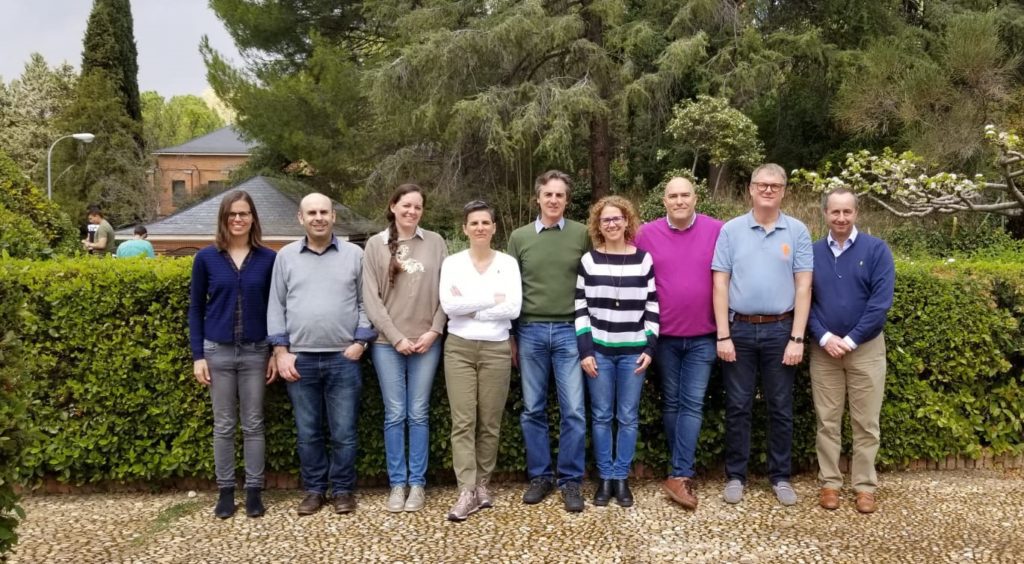
ERASMUS STTfT – Partners in the Meeting held in Madrid. April 2019
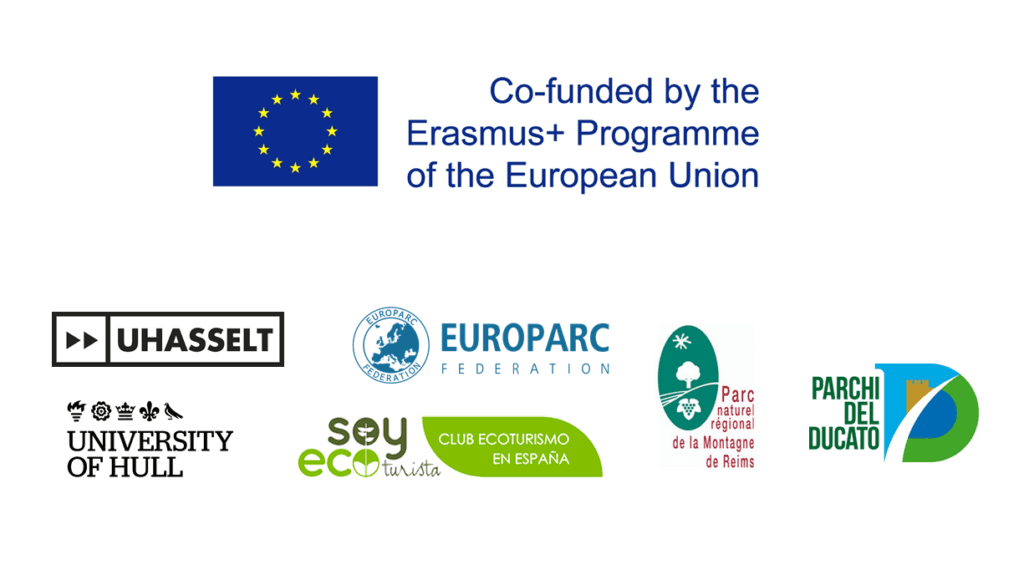
2 internship opportunities in the largest network of European Protected Areas!
The EUROPARC Federation is currently looking for a full-time intern in its Communications department in Regensburg (DE) and a full-time intern in Brussels, to work on topics related to EU Environmental policy. The call is exclusively open to students. See the details of each position below!
Internship in Communications and Digital Media
*exclusively open for students*
- Location: Regensburg, Germany
- Duration: 6 months (we are open for an agreement on the beginning of internship)
- 40 working hours a week;
- 13 days of vacation;
- Students with ERASMUS funding are welcome
The intern will have the opportunity to contribute directly to the work of a wide European environmental organisation, working along with an international team. By contributing to enhancing the organisation’s outreach and communications activities, the intern will have the chance to further develop communication skills, to discover from closer the functioning of European Protected Areas and EU environmental policies and to learn about EUROPARC Federation and its programs.
You will be…
- Assisting the Communication and Marketing Manager in producing and delivering tailored content for protected area managers (both graphic and written);
- Supporting the organisation of thematic webinars and managing online campaigns;
- Contributing to the regular update of social media networks (Twitter, Facebook, LinkedIn);
- Supporting in the implementation of EUROPARC communications strategy and contribute to the implementation of other communication tasks on EUROPARC’s main Programmes: Charter for Sustainable Tourism, Junior Ranger and Transboundary Parks Programme;
- Assisting with the production of publications;
- Support in drafting and formatting newsletters, articles and press releases on various topics;
- Help with the preparation and execution of international events, including the EUROPARC Conference and various seminars and workshops on different topics;
- Liaising with EUROPARC members from 37 countries across Europe;
You have…
- Communications & PR, Information Technology, Multimedia, Design or Journalism studies (Language and Economics studies might be considered);
- Fluency in English and any other European language is welcome. The official language in the HQ is English.
- Social Media experience – preferably in a business environment (Facebook, Twitter, LinkedIn…);
- Preferably knowledge of online interactive tools: WordPress, GetResponse
- Preferably acquaintance with video and graphic design programmes (including Adobe Illustrator, Photoshop, Premiere and InDesign);
- Excellent knowledge and experience with MS Office.
- Ability to deal with multi-disciplinary tasks, capacity to respond rapidly to a variety of diverse tasks and to prioritize;
- Good communication skills (oral and written) – ability to communicate formally and professionally;
- Good organisation skills, able to work independently and as part of a team;
- Self-starter, positive attitude, flexible, sense of humor for the multicultural working environment.
Applications:
Please send a 1-page motivation letter and your CV to Ms Esther Bossink (esther.bossink @ europarc.org) indicating “Internship communications position” in the subject line.
Take a look at the video highlighting the best moments and experience gathered by our past intern:
Internship in European Policy for Environment
*exclusively open for students*
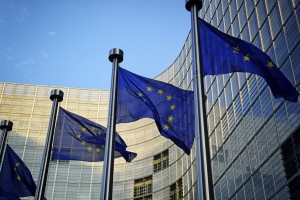
EU flags in front of European Commission © www.esomar.org
- Location: Brussels, Belgium
- Duration: 6 months (we are open for an agreement on the beginning of internship)
- 35 working hours a week;
- 13 days of vacation;
The EUROPARC Federation is currently looking for a full-time intern in its European Policy department in Brussels (B). The intern will contribute to the policy and advocacy work of the organisation, helping to represent members interests at European level and getting involved in the development of EU relevant policies, facilitating the exchange of experiences and giving support to drive the flow of information from and to our members.
You will be…
- Assisting the Policy Officer with the implementation of the EUROPARC Policy strategy;
- Following policy-making processes and related debates of relevance for Protected Area Management (related to Nature Directives, Biodiversity Strategy, Common Agricultural Policy reform, Sustainable Tourism);
- Attending meetings and networking events with partner organizations and EU Institution representatives;
- Contribute to the organization of international events in Brussels, workshops and webinars;
- Writing reports and news articles covering policy decisions / debates / current events at EU level;
- Policy updates on EUROPARC Website and social media;
- Support in organizing thematic webinars managing online campaigns; recording and publishing interviews.
You have…
- International relations, policy or communication studies (Language, Economics studies might be considered);
- Fluency in English both written and oral. The official language in the office is English.
- Social Media experience – preferably in a business environment (Facebook, Twitter, LinkedIn…)
- Interest for nature conservation and environmental related policies
- Preferably knowledge of main European environmental policies and EU Institutions’ functions;
- Preferably knowledge of the role and functions of protected areas.
- Ability to deal with multi-disciplinary tasks, capacity to respond rapidly to a variety of diverse tasks and to prioritize;
- Good communication skills (oral and written) – ability to communicate formally and professionally;
- Good organisation skills, able to work independently and as part of a team;
- Self-starter, positive attitude, flexible, sense of humor for the multicultural working environment
Applications:
Please send a 1-page motivation letter and your CV to Ms Stefania Petrosillo (stefania.petrosillo @ europarc.org) indicating “Policy Internship position” in the subject line.
Note: the intern should be ready to cover his/her own accommodation and insurance costs; EU Health insurance should be united with private health / accident insurance from home country or contracted in Belgium.
What our previous interns say…
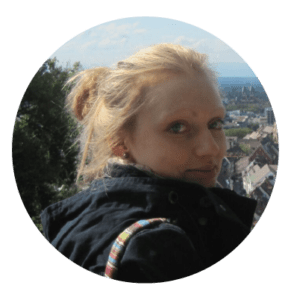 Steffi: “ … The experience to intern with the EUROPARC Federation Policy office was a great learning experience professionally and personally speaking, that I can recommend to any student interested in European policy related to the field of conservation, advocacy work and intercultural cooperation. … For me it was particularly interesting to work across the broad policy areas EUROPARC operates in … Regular report writing and supporting social media activities trained my ability to filter, qualify and interpret information for particular audiences, in this case Protected Areas practitioners and authorities…”
Steffi: “ … The experience to intern with the EUROPARC Federation Policy office was a great learning experience professionally and personally speaking, that I can recommend to any student interested in European policy related to the field of conservation, advocacy work and intercultural cooperation. … For me it was particularly interesting to work across the broad policy areas EUROPARC operates in … Regular report writing and supporting social media activities trained my ability to filter, qualify and interpret information for particular audiences, in this case Protected Areas practitioners and authorities…”
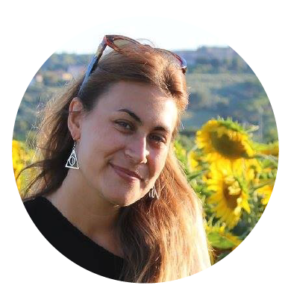 Gaia: “…This internship experience has allowed me to deepen my knowledge of the policy-decision making process behind institutions and make me able to participate to the work they do directly, understanding better their roles and functions… I improved my communication skills working on public relations with other partners and representing several time the Federation. Was a continue growth from the professional to the personal level… This experience helped me to understand that is the field where I want to work in the future.”
Gaia: “…This internship experience has allowed me to deepen my knowledge of the policy-decision making process behind institutions and make me able to participate to the work they do directly, understanding better their roles and functions… I improved my communication skills working on public relations with other partners and representing several time the Federation. Was a continue growth from the professional to the personal level… This experience helped me to understand that is the field where I want to work in the future.”
